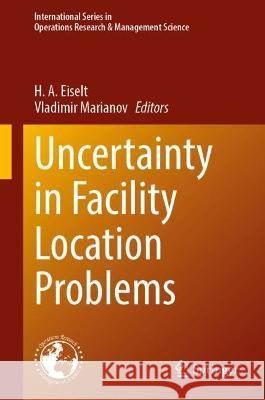Uncertainty in Facility Location Problems: Incorporating Location Science and Randomness » książka
topmenu
Uncertainty in Facility Location Problems: Incorporating Location Science and Randomness
ISBN-13: 9783031323379 / Angielski
Uncertainty in Facility Location Problems: Incorporating Location Science and Randomness
ISBN-13: 9783031323379 / Angielski
cena 722,88
(netto: 688,46 VAT: 5%)
Najniższa cena z 30 dni: 655,41
(netto: 688,46 VAT: 5%)
Najniższa cena z 30 dni: 655,41
Termin realizacji zamówienia:
ok. 22 dni roboczych.
ok. 22 dni roboczych.
Darmowa dostawa!
Kategorie:
Kategorie BISAC:
Wydawca:
Springer
Seria wydawnicza:
Język:
Angielski
ISBN-13:
9783031323379











